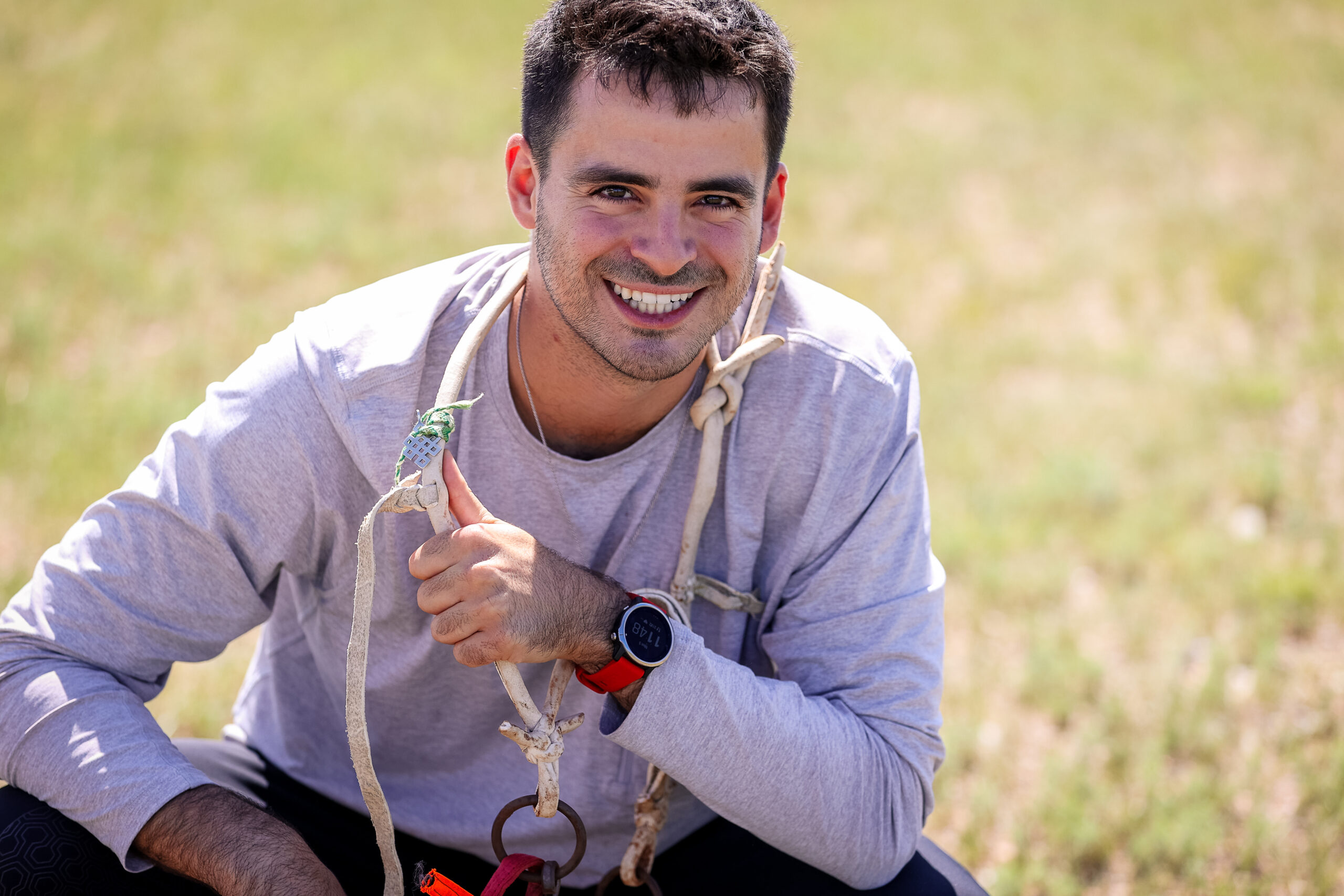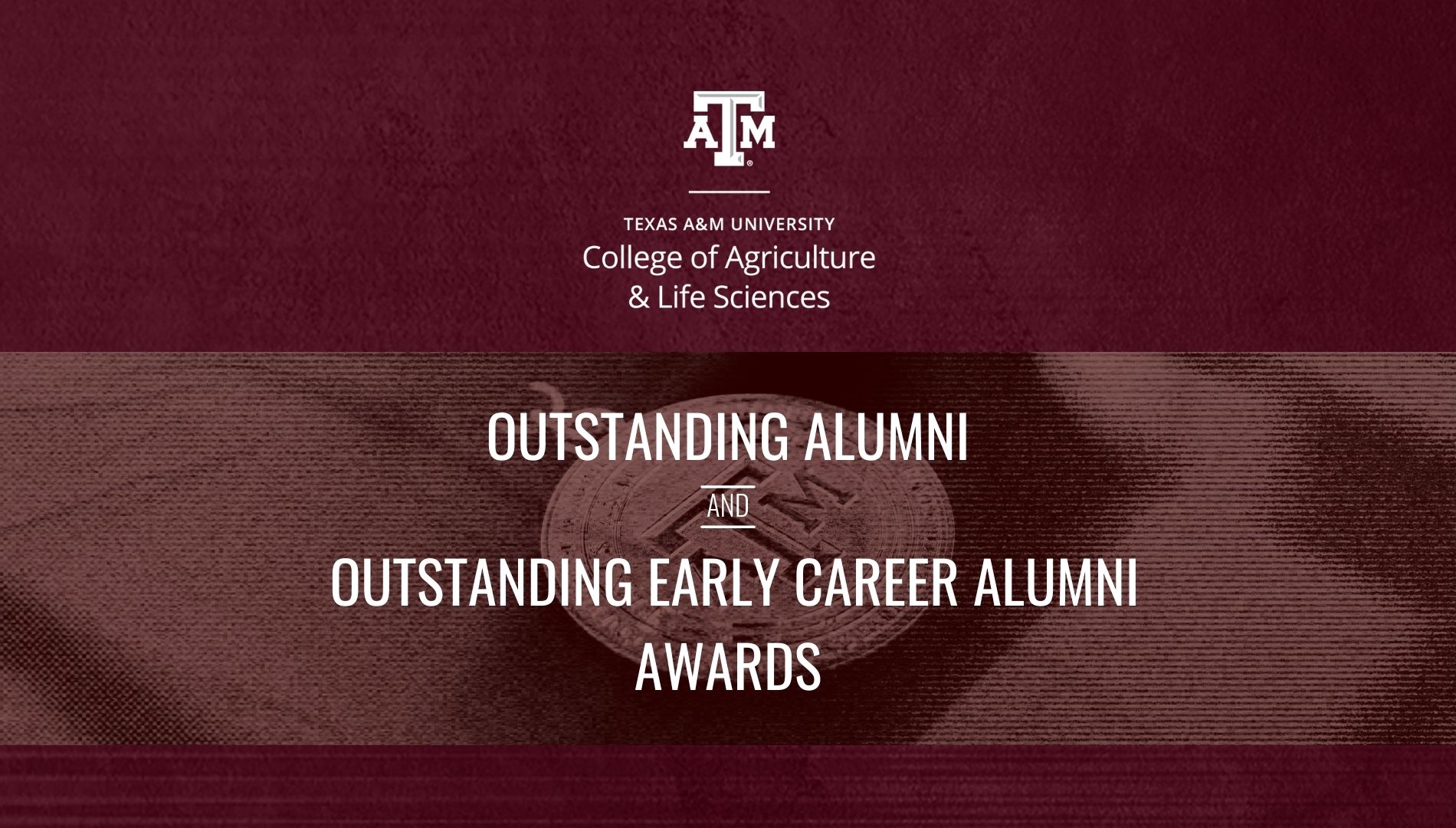Symposium lets students spread their entrepreneurial wings
Bodie Furry ’22 chosen as this year’s Entrepreneur of the Year
From business plans to posters and pitches, future entrepreneurs and business leaders displayed the real-world potential of their education at the recent 2022 Texas Farm Credit Entrepreneurial Dreams Symposium.

The two-day symposium, hosted by the Texas A&M Department of Agricultural Economics and held at the Thomas G. Hildebrand, DVM ’56 Equine Complex on the Texas A&M University campus, drew about 250 people. Attendees included students, prospective students, parents, donors, mentors and college personnel.
More than $37,000 in scholarships were awarded to current students enrolled in the Dianne and M. Edward Rister ’74 Agribusiness Entrepreneurship Program.
The event included Tyrus R. Timm Honor Registry inductions, poster presentations, a pitch competition by student Entrepreneur of the Year finalists, panel discussion with several Aggie entrepreneurs and an entrepreneurship program awards ceremony.
The symposium’s special guest speaker was Mark Hussey ’79, Ph.D., interim vice chancellor and dean of Agriculture and Life Sciences. The keynote speaker was Chris Westfall, CEO of Westfall and Associates, Plano.
The event also included a panel discussion on strategic decision-making moderated by Dan Haile ’94, executive vice president of Texas Pride Fuels, Archer City Haile was also a panelist, along with Kirk Cleere ’81, president and CEO, Sendero Drilling Co., San Angelo, and Joe Swinbank ’74, entrepreneur and long-time program supporter, Houston.
“This event is the culmination of a tremendous amount of work by the students involved in the Agribusiness Entrepreneurship Program and is also an opportunity to recognize some of the standouts from that program,” said Ed Rister, Ph.D., professor and associate head of the Department of Agricultural Economics.
Entrepreneur of the Year
At this year’s event, Bodie Furry ’22 was selected Entrepreneur of the Year.
“The Entrepreneur of the Year Award reflects the work done across the program’s two-semester capstone courses,” Weeks said. “This is when the student brings together all key aspects of their coursework and incorporates the real-life lessons and feedback provided by their professors, mentors and industry professionals. Students must also pitch their projects in a meaningful, professional manner.”

Furry said he became interested in the agribusiness program largely because his family in Giddings owns an electrical business, and he wanted to learn more about the theoretical and practical aspects of running a business.
“There was also a direct tie-in because my project for my agribusiness minor was to establish a business plan for a company that would install charging stations for electric vehicles,” he said. “I saw that as a possible future opportunity for the family business and wanted to analyze whether or not this might be a feasible direction for the company to go.”
Furry said the effort he put into his project amounted to about 10-12 hours per week over a two-semester period.
“I wrote a 149-page business plan and report with a full economic and financial analysis and market sensitivity analysis,” he said. “During the process, I was tasked with finding my own mentors and participating in mentoring and coaching sessions.
He also needed to produce a poster for competition and participate in two business-pitch competitions. The first pitch was a prerecorded video, and the second was a livestream pitch he presented to about 20-30 people, including professors, mentors, businesspeople and others.
At the symposium, Furry and five other top finalists presented a 15-minute pitch of their business plan, followed by a question-and-answer session.
“It was a lot of intense work and kind of nerve-wracking giving my business pitch in front of all those people,” he said. “But I felt I was well-prepared for everything, and the program gave me the knowledge and confidence I needed to get through it.”
Furry said he was “honored and blessed” to have won the award, but the value he derived from his experiences in the agribusiness program was far more than any award could reflect.
“I have learned that I am capable of way more than I thought I was,” he said as he thought about his past two semesters.
“I am extremely grateful for what I learned in the program and the many people who took an active interest in me and my project,” he said. “A lot of people took an interest and gave me their time and help.”
About the Agribusiness Entrepreneurship Program
The Agribusiness Entrepreneurship Program uniquely equips and positions both rural and urban entrepreneurs at Texas A&M to pursue their dreams of starting their own business or helping determine the future direction of the industries in which they find careers.
An undergraduate academic program within the Department of Agricultural Economics in the College of Agriculture and Life Sciences, the Dianne and M. Edward Rister ’74 Agribusiness Entrepreneurship Program challenges undergraduate students to move their entrepreneurial ideas forward through the development of successful business plans and models.
“The program is designed to provide essential coursework in addition to real-world experiences and analyses,” said Merritt Weeks, assistant program director in the Department of Agricultural Economics. “Students identify and connect with entrepreneurs and business professionals who serve as mentors, bringing in expertise from different business areas. They get input and feedback from these mentors who help them develop practical skills and knowledge that will serve them as entrepreneurs and business leaders.”
Student business plans are subjected to a professional economic and financial analysis, including a “shock analysis” in the event of unforeseen circumstances that may negatively impact business timing or financial projections.





